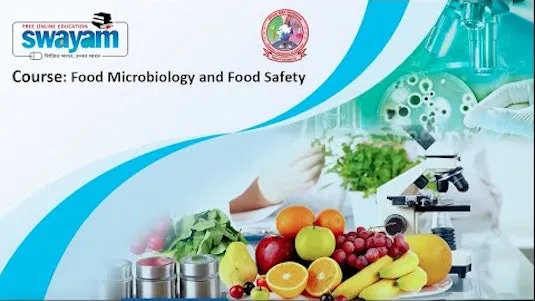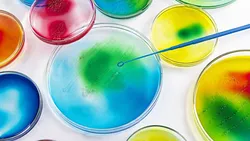
Food Microbiology and Food Safety 
This course provides an overview of food microbiology and food safety, covering topics such as important genera of microorganisms associated with food, techniques for enumeration and control of microorganisms, food spoilage, food fermentation, foodborne diseases, food safety rules and regulations, and food safety management systems. Learners will gain essential knowledge and applications of various techniques for preserving food and ensuring food safety and hygiene. ▼
ADVERTISEMENT
Course Feature
![]() Cost:
Cost:
Free
![]() Provider:
Provider:
ThaiMOOC
![]() Certificate:
Certificate:
Paid Certification
![]() Language:
Language:
English
![]() Start Date:
Start Date:
30th Jul, 2023
Course Overview
❗The content presented here is sourced directly from ThaiMOOC platform. For comprehensive course details, including enrollment information, simply click on the 'Go to class' link on our website.
Updated in [March 20th, 2023]
This course, Food Microbiology and Food Safety, provides learners with an understanding of microorganisms that grow or multiply in or contaminate the food which we consume. Learners will gain knowledge about the scope of food microbiology and food safety, important genera of microorganisms associated with food, techniques for enumeration and control of microorganisms in food, and various techniques (traditional to advance) for preserving food. Additionally, learners will understand the role of different microorganisms in food spoilage, food fermentation, and foodborne diseases, as well as the microbiological quality control and foodborne illnesses investigation procedures for ensuring food safety and hygiene. The course will also cover current national and international food safety rules and regulations, the requirements and components of a Food Safety Management System (FSMS), and the use of microbiological risk assessment (MRA) tools for assessing microbiological risks in the food sector. Upon completion of this course, learners will receive 4 credits.
[Applications]
Upon completion of this course, learners will be able to apply their knowledge of food microbiology and food safety to identify and control foodborne pathogens, understand the importance of food safety management systems, and use microbiological risk assessment tools to assess microbiological risks in the food sector. They will also be able to recognize the role of different microorganisms in food spoilage, food fermentation, and foodborne diseases, and understand the current national and international food safety rules and regulations.
[Career Paths]
1. Food Safety Manager: Food safety managers are responsible for ensuring that food products are safe for consumption. They develop and implement food safety policies and procedures, monitor food safety compliance, and investigate food safety incidents. They also provide training and education to staff on food safety topics. As the demand for safe food products increases, the need for food safety managers is expected to grow.
2. Food Microbiologist: Food microbiologists are responsible for studying the microorganisms that are present in food products. They analyze food samples to identify and quantify microorganisms, and develop methods to control and prevent contamination. They also conduct research to develop new food safety technologies and techniques.
3. Food Quality Assurance Technician: Food quality assurance technicians are responsible for ensuring that food products meet quality standards. They inspect food products for defects, test food samples for contamination, and monitor food production processes. They also develop and implement quality control procedures to ensure that food products are safe for consumption.
4. Food Safety Inspector: Food safety inspectors are responsible for ensuring that food products meet safety standards. They inspect food production facilities, investigate food safety incidents, and enforce food safety regulations. They also provide training and education to food production staff on food safety topics.
[Education Paths]
1. Bachelor of Science in Food Science and Technology: This degree program focuses on the science and technology of food production, preservation, and safety. It covers topics such as food chemistry, food engineering, food microbiology, food safety, and nutrition. Students learn about the principles of food processing, food safety regulations, and food quality control. This degree is becoming increasingly important as the demand for safe and nutritious food increases.
2. Master of Science in Food Safety and Quality Management: This degree program focuses on the management of food safety and quality. It covers topics such as food safety regulations, food safety management systems, food safety auditing, food safety risk assessment, and food safety training. Students learn about the principles of food safety and quality management, and how to develop and implement food safety and quality management systems. This degree is becoming increasingly important as the demand for safe and nutritious food increases.
3. Doctor of Philosophy in Food Science and Technology: This degree program focuses on advanced research in food science and technology. It covers topics such as food chemistry, food engineering, food microbiology, food safety, and nutrition. Students learn about the principles of food processing, food safety regulations, and food quality control. This degree is becoming increasingly important as the demand for safe and nutritious food increases.
4. Master of Science in Food Microbiology: This degree program focuses on the study of microorganisms that grow or multiply in or contaminate the food which we consume. It covers topics such as food microbiology, food safety, food spoilage, food fermentation, and foodborne diseases. Students learn about the principles of food microbiology, food safety regulations, and food quality control. This degree is becoming increasingly important as the demand for safe and nutritious food increases.
Course Provider

Provider ThaiMOOC's Stats at AZClass
Food Microbiology and Food Safety provides an overview of food microbiology and food safety, covering important food-related microbial genera, microbial enumeration and control techniques, food spoilage, food fermentation, foodborne diseases, food safety regulations and food safety management systems theme. Learners will gain basic knowledge and application of various techniques for preserving food and ensuring food safety and hygiene. Learners will gain an understanding of the scope of food microbiology and food safety, including the role of microorganisms in food spoilage, food fermentation and foodborne illness.
Discussion and Reviews
0.0 (Based on 0 reviews)
Explore Similar Online Courses

Visual Analytics with Tableau

Spring Professional Certification Exam Tutorial - Module 01

Python for Informatics: Exploring Information

Social Network Analysis

Introduction to Systematic Review and Meta-Analysis

The Analytics Edge

DCO042 - Python For Informatics

Causal Diagrams: Draw Your Assumptions Before Your Conclusions

Whole genome sequencing of bacterial genomes - tools and applications

Microbiology and Forensic Science

Microbiology Textbook


Start your review of Food Microbiology and Food Safety